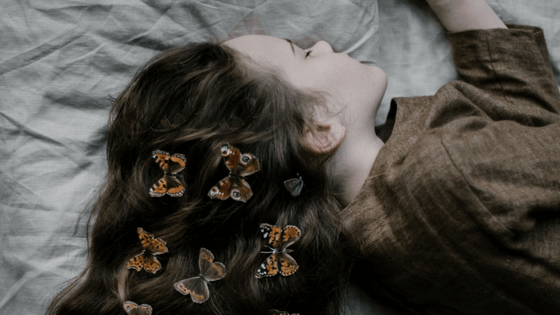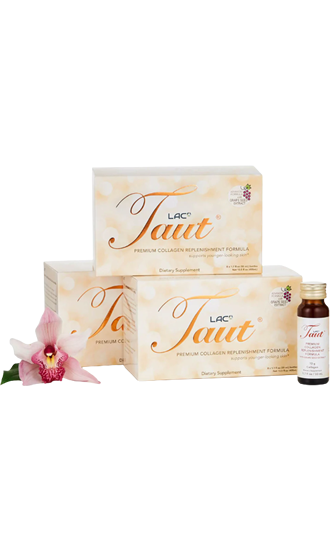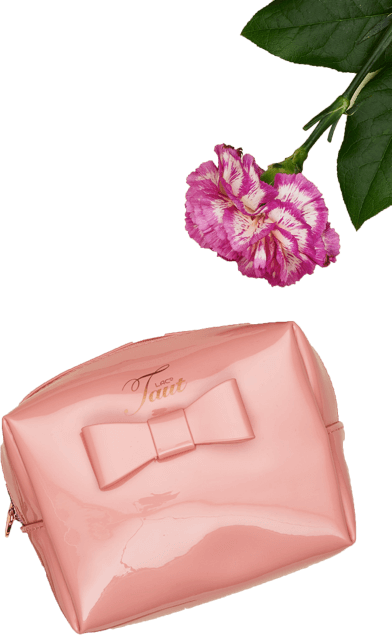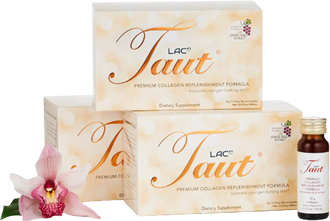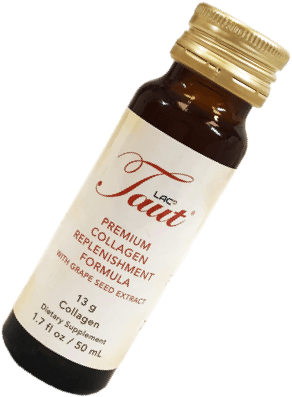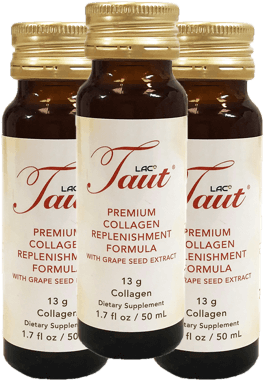Beauty Sleep: What Is It and How to Get Beautiful Skin (Your Time Period)
Most of us take sleep for granted. But did you know that lack of sleep is linked to premature aging, fine lines, wrinkles & sagging skin?
What if we said that there is a real fountain of youth? You can reverse the hands of time with just one thing: a good night's sleep. Although you might not believe us when we say that the right amount of shut-eye can totally change your beauty routine - it’s actually true!
We’re sure everyone from your mom to your doctors have probably mentioned how important it is to have a good night’s sleep. That's right, beauty is highly influenced by the number of hours you sleep every night (there’s even research to prove it). Even some of the best skin care in the world can’t give you the benefits of beauty sleep. 1
And, being well-rested is not only important for getting rid of those dark circles, but it also affects how you feel and perform throughout the day. Getting enough sleep is vital to your health and well-being. While you sleep, the body works to repair and restore itself. And, if you don’t get enough sleep, you can end up secreting fewer hormones and slowing down the repair processes. Unfortunately, many of us lead busy, overscheduled lives and don't get the number of hours we need each night. We probably won't even notice the difference until the signs of aging show up in our skin, hair, and body.
Chronic tiredness has been linked to cancer, diabetes, obesity, immune deficiency, and most recently, it has been scientifically proven that it can lead to premature skin aging. 2
To better understand why a good night's sleep has such a significant impact on our skin, it's important to understand what happens when we sleep. Let's take a closer look:
What Happens When You’re Asleep?
Wondering how sleep and beauty go hand in hand? First, we’ll need to understand a little bit more about your slumber and how it works. You might already know that during the night you cycle through four different stages. And, each one plays an important role to make sure you get your beauty sleep:
Stage 1 Sleep
Stage 1 happens 5 to 10 minutes after you fall asleep. During stage one, it’s easy to be woken up. This is when your muscles begin to relax.
Stage 2 Sleep
Stage 2, which takes up about half of the entire cycle, lasts around 45 to 50 minutes. During stage 2, your body temperature begins to drop and your breathing becomes more relaxed as you prepare for the next phase.
Stage 3 Sleep
Stage 3 is when you’re sleeping your deepest. The release of growth hormone during this stage helps with the repair and rebuilding process of tissue. And, this hormone also gives a boost to elastin and collagen production. This is why slumber can enhance the skin and lead to fewer wrinkles.
During deep sleep, the body’s tissues demonstrate boosted cell production and slower breakdown of proteins. Your muscles and tissues are repaired and the waste management systems in your brain become active, flushing out the waste that interferes with cognitive function. It is very difficult to wake someone up when they are in this phase of sleep.
Stage 4 Sleep, or REM
Stage 4 is the final stage which is known as REM (Rapid Eye Movement). REM generally lasts about 20 minutes. During REM, the brain is active and your eyes are moving rapidly (hence the strange name), even though your eyes are closed. Most dreaming takes place during the REM phase.
More helpful reading: Marionette lines
How Lack of Shuteye Can Affect Your Health
So, you might be wondering what is beauty sleep? It may seem like a made-up concept or an excuse to press the ‘snooze’ button, but actually, there is a huge correlation between sleep and beauty. Sleep, skin, hair, and health go hand in hand - even research undertaken by the American Academy of Dermatology recommends proper beauty rest as one of their anti-aging skin tips. 3
More helpful reading: Skincare trends
Why Is Sleeping Such a Good Thing for Your Skin, Body, & Overall Health?
While you sleep, your skin is able to repair itself, which is due to an increase in blood flow to the dermis. And, when blood flow increases, the skin cells start to regenerate. This increase in blood flow provides a whole list of beauty benefits to your face, like a younger-looking appearance, fewer wrinkles, and less puffiness around the eyes, to name a few.
You may have noticed that when you don’t get enough sleep, you (and others) can see a difference in your face. Because of the reduction in blood flow caused by sleep deprivation, you might see a change in skin tone, an increase in wrinkles, puffy eyelids, dark circles, and an overall tired-looking complexion. And, no matter how many vitamin A serums or caffeine-enriched skin care products you layer on, you still look tired. Others may even find you less attractive, according to the research in this study from 2010. 4
More helpful reading by RenewSkin Inc.:
https://www.renewskinco.com/blogs/i/7-easy-ways-to-combat-sunday-scaries
The Importance of Collagen Production
Another one of the ways the skin regenerates itself is through collagen production. Collagen is an essential protein that your body produces naturally. It replaces dead skin cells and makes skin firm and elastic. When you’re young, your body produces a lot of collagen — that’s why children and teenagers have such bouncy, uplifted skin. However, sometime in your mid to late 20s, your body stops producing as much. In fact, in your 20s, collagen levels in your body begin to drop by 1 to 2% each year! A study published in Medical Hypotheses found that a lack of sleep can affect your skin’s integrity, including collagen production. Getting an adequate amount of sleep can help your body make collagen to repair itself. 5
More helpful reading from RenewSkin Inc.: How much collagen peptides per day?
Melatonin & Human Growth Hormone
Another thing skin does while you’re snoozing is to make the hormones melatonin and human growth hormone (hGH). Melatonin helps your body know when to sleep and when to wake. According to a study published in Dermato Endocrinology, “There is considerable evidence for melatonin to be an effective anti-skin aging compound.” Your body produces human growth hormone to help grow and repair your cells. Getting enough sleep can help these necessary hormones do their important jobs.
More helpful reading: How to increase collagen
Sebum & the Circadian Rhythm
One not-so-great thing your skin does while you sleep? It loses moisture. Your skin produces an oil called sebum. Too much sebum, and you get acne. Too little, and your face becomes dry and wrinkly. Research shows that sebum production is closely tied to your circadian rhythm and is lowest during the night.6 That’s one reason it’s important to use a good moisturizer before you go to sleep.
Here’s another reason your skin is drier at night: According to a report published in The Dermatologist, our skin is more acidic and hotter during the night compared to the day.7 This makes it more susceptible to moisture loss. Dry skin equals old skin, so moisturizing before bed is a critical part of getting the young, dewy skin you want.
Everyone needs a break, right? That goes for skin too! When you sleep, your skin is taking a break from complexion-ruiners like sunlight and stress. Ultra-violet radiation is one of the worst skin agers. A study published in the Dermatology Online Journal found a link between psychological stress and aging skin. When you sleep, your skin doesn’t have to deal with these immediate dangers.
Rest & Attractiveness
Not only can a lack of sound sleep affect how you look now, but experts have even researched the effects of rest on how you and others perceive yourself in the long-run. Studies have shown that poor sleep increases the signs of aging and slows the skin’s recovery from various environmental stress factors, including ultraviolet radiation, environmental toxins (especially in big cities like New York), and disruption to the dermis.
The epidermis (the outermost layer of the skin) is responsible for retaining more moisture and protecting the dermis. When it’s damaged, the dermis experiences more water loss. This is because sleep deprivation contributes to decreased barrier function and increased water loss, which in turn causes dryness and dullness of the skin, face, and eyes.
More helpful reading: crepey skin
The Effects of Shut-Eye on the Immune System
Being tired can also affect the immune system’s function, which hurts your skin’s ability to repair and restore itself. Additionally, a lack of sleep stimulates the release of the stress hormone cortisol, which breaks down collagen and causes skin sagging. Chronic stress harms the integrity of the skin’s collagen.
A Clinically-Studied Fact...
The concept of slumber improving women’s looks has been clinically proven, as demonstrated in a recent clinical trial commissioned by Estee Lauder. The clinical trial, which was held at the University Hospitals (UH) Case Medical Center, conclusively showed that inadequate shuteye accelerates skin aging. The study involved 60 pre-menopausal women between the ages of 30 and 49, with half of them falling into the ‘poor-quality sleep’ category. The study found significant differences between good-quality and poor-quality sleepers. Learn about natural menopause help here. 8
The women who got fewer hours of sleep who participated in the study showed more signs of premature skin aging, including fine lines and wrinkles, uneven pigmentation, reduced skin elasticity, and more sagging skin. These people also had a decreased ability to recover after sun exposure, with more sluggish recovery from sunburn. Subjects completed a questionnaire evaluating their perception of attractiveness, and poor sleepers reported lower satisfaction with their appearance.
Now that we know that quality rest is vital to keeping our face looking youthful and preventing premature aging, here are some tips to help you get the rest that you need to boost skin repair at night.
More helpful reading:
https://www.renewskinco.com/blogs/i/youthful-skin
4 Tips for Getting 8 Hours of Quality Sleep Each Night
Wondering how to start getting enough beauty sleep to avoid those dark circles and puffy eyes? To start with, most people should be sleeping seven to eight hours per night. If you’re waking up every day with bags under your eyes and you're not sure how many hours of sleep you’re getting every night, consider investing in a fitness tracker. Most of the products available these days are able to track your sleeping patterns and can give you a detailed report on how you slept.
Of course, we understand that it’s not always possible to fully control your beauty sleep time period each night due to a number of potential interferences. For example, if you live in a big, noisy city like New York, it can be difficult to get proper shut-eye with the constant street noise and late-night lifestyle of the community as a whole (New York is the city that never sleeps, after all).
There are, however, a few easy habits people can adopt to enhance their slumber and as a result their skin health.
1. Avoid Technology
Get proper shuteye by going to bed by no later than 11 pm and leaving all gadgets, like computers and cell phones, out of your bedroom as they emit blue light. Using blue light-emitting devices before bed can affect levels of the hormone melatonin, which you naturally produce. 9
Melatonin is present at low levels in the daytime. It begins to be released a few hours before bedtime and peaks in the middle of the night. Melatonin is critical as it regulates how all of your hormones are released and signals for cell repair work while we snooze. It also can affect hair growth and people with lower levels of melatonin might notice an increase in hair loss and hair thinning.
When people are exposed to blue light before bedtime, melatonin is suppressed and their body’s natural clock or circadian rhythm is shifted. With this in mind, it’s best to avoid using blue light-emitting devices before bedtime. If you absolutely must use devices at night, dim their brightness levels as much as possible, or use built-in apps to eliminate blue light.
More helpful reading: is blue light bad for your skin?
2. Put Down the Alcohol & Caffeine
Everyone can appreciate a post-work glass of wine or a drink with dinner, but if you want to improve your sleeping patterns, try to avoid alcohol and caffeine four to six hours before bedtime. Although alcohol can help you fall asleep, it can cause you to wake up more frequently in the middle of the night and disrupt the cycles that are most critical to cell regeneration and restoration.
More helpful reading: Detox for clear skin.
3. Set the Mood
It’s time to face the music - your bedroom could use an upgrade. Why not turn your bedroom into a sleeper’s paradise? Purchase a nice, comfortable mattress that lets you fully relax. Prop up your head at night with a few new pillows. Some people enjoy using silk pillowcases, not just because they’re comfortable, but because they may be able to reduce wrinkles, keep your skincare and lip balm on your face (by not getting absorbed into the fabric), and prevent morning bed-head and hair damage.
While you’re improving your space, try hanging black-out curtains because you’ll want your bedroom to be as dark as possible. Even the tiniest amount of light can interfere with your slumber.
4. Eat Earlier & Avoid Certain Types of Food
Make healthy eating choices. Experts at Harvard Medical School recommend avoiding food containing lactose or certain foods like garlic, fried foods, tomato sauces, sugar, and onions. The truth is, these types of foods can cause heartburn, cramping, bloating, and other digestional issues that can prevent you from getting the number of uninterrupted hours you need. 10
Not only does what you eat matter for an uninterrupted, beautiful night's sleep but when you eat matters as well. In fact, research has shown that eating food at night, or close to bedtime (like dinner or a late-night snack), can affect the quality of your slumber. 11
More helpful reading on how to lose weight here.
What You Can Do to Boost Skin Cell Regeneration at Night While You Snooze
In addition to sleeping enough, there are other things you can do to enhance your slumber to prevent premature aging and maintain a youthful appearance. As we’ve discussed, our face and body go into repair mode while we’re resting, so using some high-quality skin care products like a moisturizer, face cream or serum can aid in repairing and rejuvenating the dermis. By the time you wake up, your skin will look plump and hydrated. Furthermore, because your skin loses water at night, using moisturizing products ensures that your dermis doesn’t get too dehydrated while you snooze.
Unlike day creams, your night moisturizer doesn't contain ingredients that offer sun protection. Night creams contain moisturizers and anti-aging ingredients that contribute to the skin’s recovery. Therefore, night creams are thicker and richer than day creams. Serums are light, fast-absorbing liquids that can be used as an alternative or addition to creams. Serums contain a potent dose of anti-aging ingredients.
More helpful reading:
https://www.renewskinco.com/blogs/i/over-50-skin-care-routine
Why It’s Important to Take a Collagen Supplement at Night
At the end of the day, you need your beauty sleep. Your skincare regimen, clear skin diet, and collagen supplements will only go so far if you don’t get enough z’s. Start getting seven to eight hours of quality slumber each night to prevent premature aging and maximize your skin’s health.
The amount of collagen in our skin decreases as we age. And, according to researchers, the dermis not only works harder to rejuvenate itself while you’re asleep, but skin cell regeneration is faster at night than it is during the daytime. Skin cell regeneration peaks between 11 pm and 4 am. During this time, there is a boost in collagen production and harmful free radicals are destroyed. So, why not enhance collagen production and supercharge your siesta and overall health with a liquid collagen supplement before you go to bed? 9
More helpful reading by RenewSkin Inc.: How to get rid of deep forehead wrinkles
Transform Your Skin With Taut Premium Collagen Drink
Regularly consuming a collagen drink, like our Taut Premium Collagen Drink at night before bed helps to make your skin look firm, luminous, and youthful while decreasing the signs of aging. While topical collagen creams temporarily plump the skin, only a collagen supplement like ours containing low molecular weight peptides can be absorbed by the skin and increase collagen production. Our unique and effective formula contains 13,000mg of high-potency, premium marine hydrolyzed collagen sourced from wild-caught red snapper to support the skin’s collagen, firmness, moisture, and elasticity.
And, just so you can reach all of your skincare goals, we’ve created the Taut Premium Collagen Intense Transformation Program which includes 3 boxes of our best-selling, skin-enhancing drink so that you can get a boost of collagen before bedtime and reap the benefits of a firmer, fuller, and more radiant complexion. Start waking up to gorgeous skin!
Ready to find out more about how to give your complexion an extra boost of suppleness and hydration? Contact our team today to learn more about our products so you can achieve all of your gorgeous skin, hair, and health goals.

Ready to take your skincare routine to the next level? Check out our blog for more helpful resources to help you achieve plump, youthful skin for years to come.
References:
- https://pubmed.ncbi.nlm.nih.gov/21156746/
- https://www.sciencedaily.com/releases/2013/07 /130723155002.htm#:~:text=%22Our%20study%20is%20the%20first,sun%20exposure%2C%22%20said%20Dr.
- https://www.aad.org/public/everyday-care/skin-care-basics/care/skin-care-in-your-40s-and-50s
- https://pubmed.ncbi.nlm.nih.gov/21156746/
- https://www.medical-hypotheses.com/article/S0306-9877(10)00246-X/fulltext
- https://onlinelibrary.wiley.com/doi/full/10.1111/j.1365-2133.1970.tb02211.x
- https://www.the-dermatologist.com/content/night-skin
- https://www.ncbi.nlm.nih.gov/pubmed/25266053
- https://www.scientificamerican.com/article/q-a-why-is-blue-light-before-bedtime-bad-for-sleep/
- https://www.health.harvard.edu/staying-healthy/improve-sleep-by-eating-right
- https://www.ncbi.nlm.nih.gov/pmc/articles/PMC3227713/
- https://www.eurekalert.org/pub_releases/2015-01/uoc--crr010615.php

